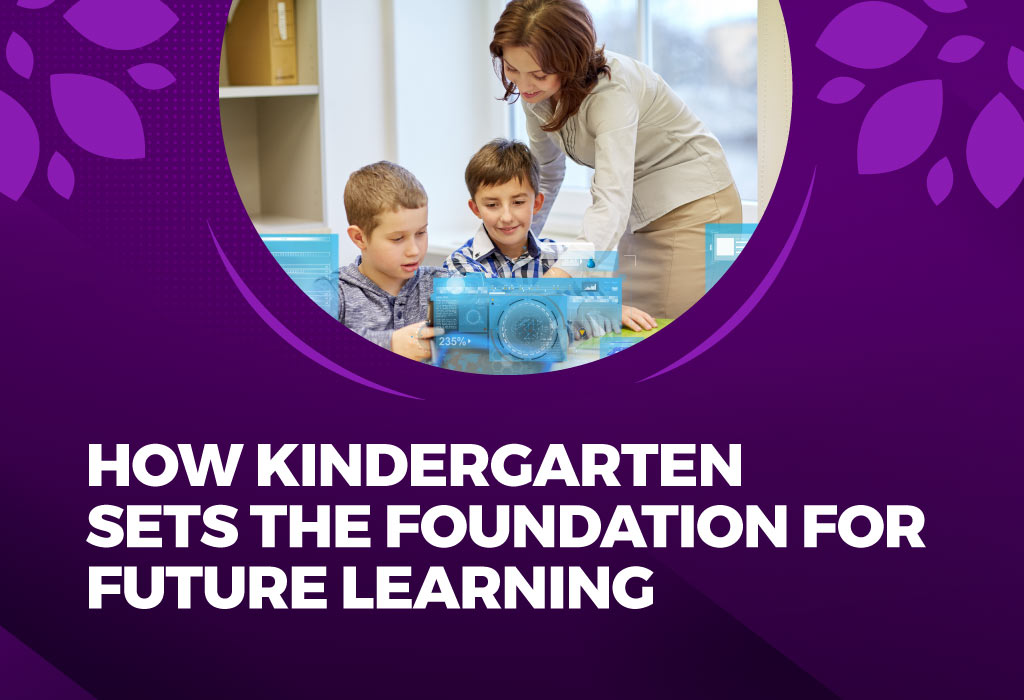How Kindergarten Sets the Foundation for Future Learning

Kindergarten is basically considered the initial step taken by a child towards his or her school life. It is a huge step for transition from learning at home to a school. If parents seek out the right institution where their children can get early education, then a Kindergarten School in Vedapatti can offer some unique community-based and individual needs-specific benefits. In understanding how kindergarten lays the base for future learning, various aspects of early childhood education have to be explored, starting with its long-term impact.
1. Development of Social Skills
Perhaps the most important advantage of kindergarten is the growth of social skills. The child, at a Kindergarten School in Vedapatti, engages with peers within a learning environment that assists teamwork, sharing, and communication. These social interactions are very important because they enable children to learn how to work with others, resolve conflicts, and feel for others. These simple skills are the rudiments not only to later success at school, but throughout the personal and professional relationships in one’s life.
2. Introduction to Academic Concepts
Kindergarten allows children to be introduced to the basic academic concepts in an interesting manner and without applying any pressure. At the Kindergarten School in Vedapatti, the basic kind of ideas given in the curriculum includes being ready in literacy, numeracy, and science concepts. Identifying the children with letters, numbers, and shapes through play and hands-on experiences are important building blocks for future learning. This early exposure also enables the kindling of a love for learning in children and makes the transition to primary school smoother.
3. Development of Motor Skills
Being a Kindergarten School in Vedapatti, the institution ensures that kids engross themselves in physical activities to enhance these skills. For example, outdoor play facilitate gross motor skills, very important for overall physical health and academic performance. Activities such as drawing, cutting with scissors, and playing with building blocks help children hone their hand-eye coordination and dexterity.
4. Emotional and Cognitive Growth
One of the cornerstones of kindergarten education is the child’s emotional and cognitive development. In the Kindergarten School in Vedapatti, children learn to realize and deal with their feelings, creating the real foundation for well-being and academic success in the future. The teachers let children identify their feelings and develop ways of surmounting negative feelings and build resilience. Cognitive growth is fostered by encouraging problem-solving activities, critical thinking, and creativity—the skills that will help young learners be prepared for more challenging cognitive tasks ahead.
5. Building a Love for Learning
Setting up a positive and stimulating environment is important to be able to create an interest in lifelong learning. Teachers at this Best School in Vedapatti take learning to be fun and exciting with interactive lessons and creative play. Children will more likely start loving education if they enjoy themselves during the process of learning. That is just the beginning in building a positive attitude towards education, one that later influences high academic achievement and curiosity.
6. Preparation for Primary School
Not only does kindergarten play a critical role in preparing children for the more formal structure of primary school, but it also inducts children gradually into classroom routines, following instructions, and completing tasks on their own. That is why, at any good Kindergarten School in Vedapatti, this preparation eases the children into the transition to primary school by getting them familiar with what would be expected from them and what the formal education setting would look like.
7. Fostering Independence and Responsibility
During kindergarten, he learns to become independent and responsible. At this level of learning, the children are able to keep their things in order, adhere to schedules, and make decisions regarding which activity they want to engage in. In a Kindergarten School in Vedapatti, age-related responsibilities will be taught and encouraged, such as cleaning after oneself and taking part in group activities. This experience boosts self-confidence, getting them ready for increased independence in later school years.
8. Cultural and Community Engagement
Much emphasis is given to local culture and community in kindergarten at Vedapatti. That way, children will learn their cultural heritage and know their place in community events. Participation in such cultural events will help them in the active learning process to broaden their outlook toward life.
9. Parental Involvement and Support
The contribution of parents in the early stage of a child’s education cannot be negated. This is the reason why, at many kindergarten schools in Vedapatti, the schools constantly help facilitate parental involvement through regular correspondence, parent-teacher meetings, and school events. Such collaboration between parents and teachers ensures that the children receive consistent support and reinforcement of learning goals within and outside the premises of the school.
10. Holistic Development
The ultimate goal of kindergarten should be the holistic development of each child. So, to gain this particular aim, not only develop academic skills but also those which develop in social, emotional, physical, and cognitive growth. The structure of a Kindergarten School in Vedapatti meets the requirements of every child; it imbues education with a view to setting the children on a path of future success both academically and personally.
Conclusion
In a nutshell, kindergarten might be the first step into school, but actually, it is one of the most crucial stages of development in the life of a child. Kindergarten School in Vedapatti prepares kids for later stages of life through social skills, the initial academic concepts, and enhancements in their emotional and cognitive growth. These skills and experiences, developed through continuous transitions from kindergarten to primary, shall act as a very strong base for further growth and lifelong learning.

